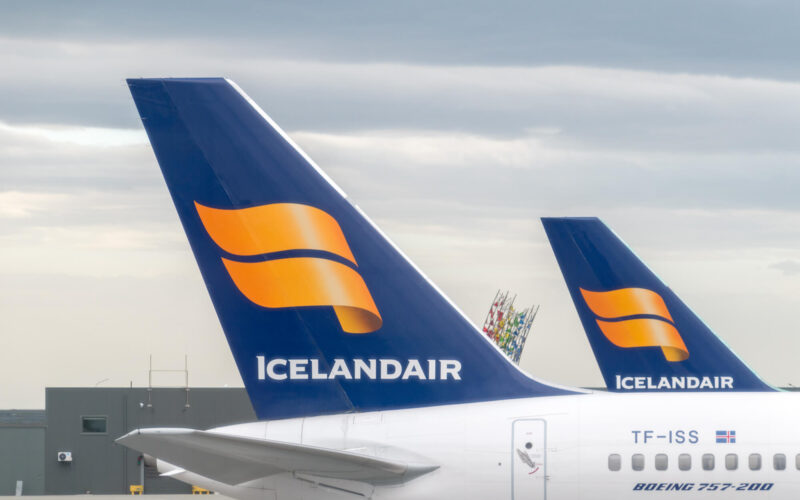Icelandair is looking to add up to three more Boeing 737 MAX aircraft for summer 2022 and has resumed work on its long-term fleet plans, the carrier announced on October 20, 2021.
As of the end of September 2021, the Icelandic flag carrier had nine 737 MAX aircraft in its fleet. The final three aircraft, from an original order of 12 aircraft, are due to be delivered in December 2021 and January 2022.
But the carrier is now looking for up to three more 737 MAX for summer 2022, and is in talks with leasing companies, citing “favorable conditions” in the commercial aircraft market.
“Discussions with aircraft lessors are progressing well and expected to be concluded before the end of the year,” the carrier stated in its third quarter results, published on October 20, 2021.
The airline commented that the MAX aircraft had provided better technical reliability, fuel efficiency and payload-range than initially assumed. It generates 36% less CO2 emissions than the Boeing 757, Icelandair noted.
Icelandair also said it had restarted a review of its long-term fleet strategy, which had been put on hold during the COVID-19 pandemic. The carrier aims to finish work on the fleet strategy “before the end of year”.
The fleet news came as Icelandair reported that net cash from operations amounted to $25.2 million in the third quarter of 2021, compared to negative $88.3 million in 2020.
Chief executive Bogi Nils Bogason said improved demand and increasing capacity helped the carrier turn a profit from regular operations in the quarter for the first time in two years. Its freight volumes and revenues exceeded pre-COVID-19 levels.
The spread of the Delta variant did impact bookings for a brief period during the third quarter, although Icelandair said the situation has since recovered and bookings have been strong during the last few weeks.
Icelandair’s capacity stood at 50% of pre-pandemic levels in Q3. It plans to increase this to 65% in Q4 and 80% in 2022. News that the United States is opening its borders will provide a further boost to the carrier, which connects North America and Europe via Iceland.
“Going forward, we see strong booking trends,” Bogason said. “The opening of the US borders means that we can finally start harnessing the full potential of our route network for the first time since March 2020.”
However, rising fuel prices will affect operating results in the fourth quarter, the company warned, echoing a similar caution from US carrier Delta. Icelandair’s crew costs will also be negatively impacted by the requirement for MAX training as it receives more aircraft in the coming months.

